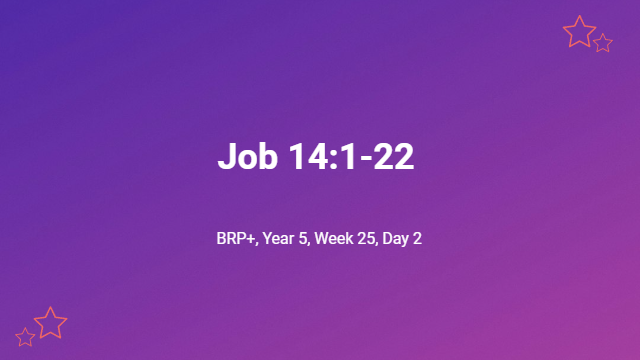Job 14:1-22
Q.1. How did Job view life? Who determines the circumstances of our lives? How final is death? What is the challenge of these thoughts? – (Job 14:1-12)
Job had had a grown family. He and his wife would later have more children (Job 1:2 c.f. 42:13). His view of life had perspective. He noted that life is relatively brief, and strife can strike at any time. He also recognized that man is fallen and guilty of sin and does not control his own life-span – “Since his days are determined, the number of his months is with You; And his limits You have set so that he cannot pass (Job.14:5). When a life is cut short, there is no return to life as we have known it – unlike a stump of a tree that might shoot branches and leaves again (Job 14:7-10). The challenge of Job’s observations is that we should consider wisely how we live life, while we can. Paul wrote – According to the grace of God, which was given to me, like a wise master builder I laid a foundation, and another is building on it. But each man must be careful how he builds on it (1 Cor.3:10).
Q.2. Why was Sheol preferable to Job’s state of suffering? How did Job view the burden of his sin, and man’s final parting? How was Job faring? – (Job 14:13-22)
As Job’s life hung in the balance, he contemplated what it would be like to die and go to Sheol (i.e. the resting place of the dead). He concluded that the ‘righteous’ dead are not aroused or provoked in that state and are concealed from sight. Jesus did not agree with this simplistic analysis (Lk.16:19-31; Jn.5:25-29; 6:40). While he was living, Job was aware that God was keeping a record of all his sins, and that every transgression would be reckoned (Job 14:16-17). He felt that he was overpowered by God, without an adequate explanation for his acute sense of loss and pain – 20 “You forever overpower him and he departs; You change his appearance and send him away … 22 “But his body pains him, and he mourns only for himself.” (Job 14:20 & 22). Job had lost all hope in life.

